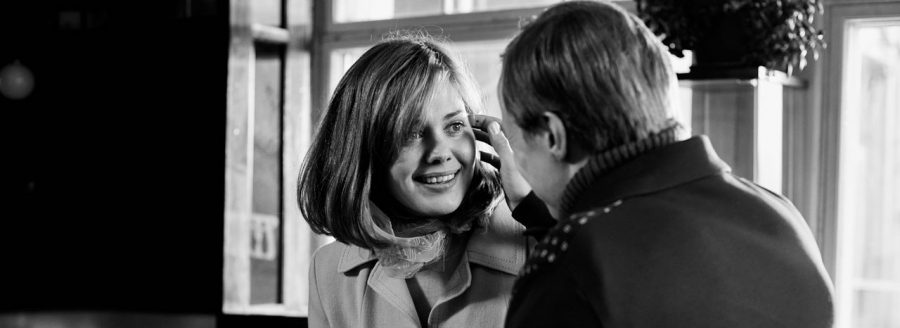In selected cinemas nationwide.
Boxing films tend to be characterised by their intensity. The sport can be used as a backdrop for tales of redemption like Southpaw, David and Goliath stories like Rocky or cautionary tales like Raging Bull. It is Scorsese’s incendiary classic that The Happiest Day in the Life of Olli Mäki most outwardly resembles, filmed as it is in the same crisp black and white, but it takes a different approach entirely. Juno Kuosmanen’s film is a gentle, eccentric romantic comedy telling the true-life story of Finnish boxer Olli Mäki and his shot of world featherweight glory. It’s a beautiful little wonder of wry humour and seemingly infinite charm.
The film is set in 1962 and follows the build up to Mäki’s title fight against American champion Davey Moore, being held on home turf in Helsinki. His coach Ellis Ask (Eero Milonoff), seemingly hoping to vicariously recapture his own boxing glory days through Olli, employs a documentary crew and drags his great white hope to various promotional events. This doesn’t sit comfortably with the quiet, uncomplicated Olli, who has just fallen in love with the pretty Raija (Oona Airola). The film documents his attempt to balance his professional ambition with his home life.
Everything about the film is understated, to its undoubted benefit. Central to this is Jarkko Lahti’s beautifully restrained portrait of Mäki himself. The small, wiry character does most of the heavy lifting through body language. Shrinking in the glare of publicity, he’s only comfortable in the ring where his hidden physicality is suddenly explosive, and on the arm of his love. Airola is a beaming delight and, gratifyingly in the sports film genre, the catalyst for much of the story, rather than a background figure merely there as home life detail.
The film doesn’t patronise Olli and Raija’s small-town simplicity, despite his bewilderment in the face of the relentless business face of the sport providing much of the amusement. Yes, he’s inept at sound bites for the newspapers and painfully shy with a camera on him. However, his lack of guile is celebrated without painting him as some kind of a yokel savant.
There are times where the film lacks a sense of urgency, or real drama. The closest it really comes to conflict (somewhat ironic in a boxing film) is in the rising exasperation of Ellis at Olli’s recalcitrant demeanour. Even the long-awaited bout itself is purposely brief and anti-climactic, which fits both the mood of the film and historical accuracy. Surely only those seeking the standard tropes of the boxing film could come away disappointed however. The Happiest Day in the Life of Olli Mäki is a heart-warming gem that is openly sentimental, but never gets close to mawkish. Don’t be surprised if it sneaks its unassuming way into the end-of-year highlights of several critics.
